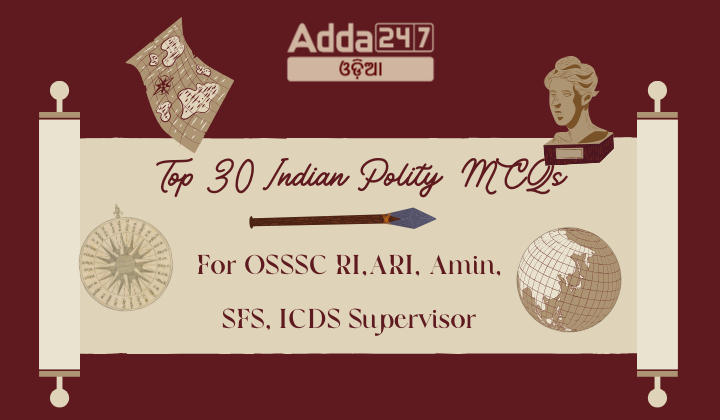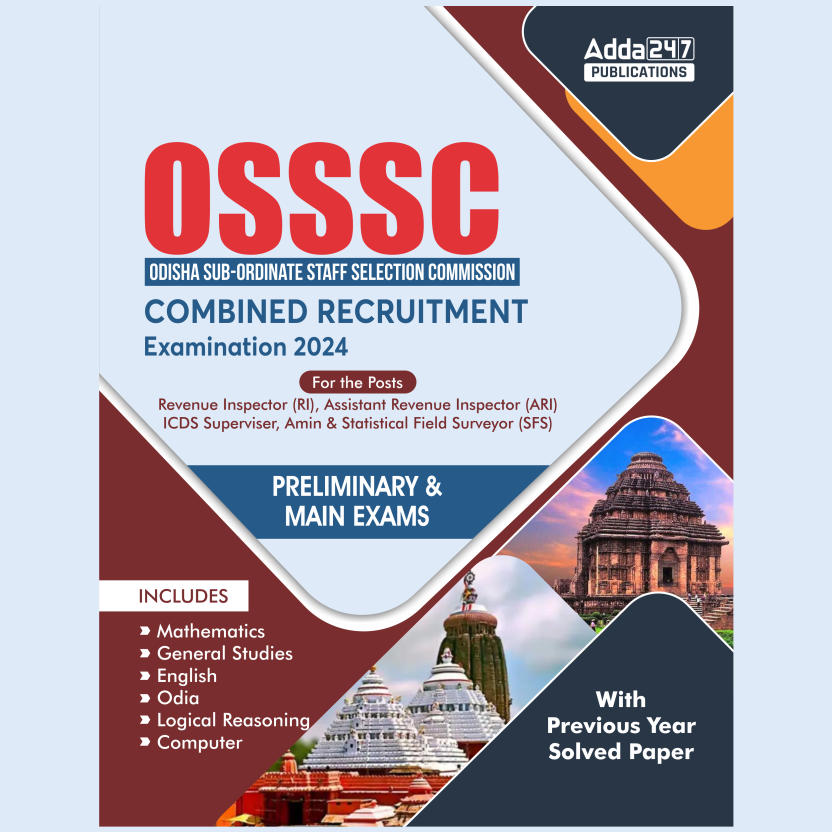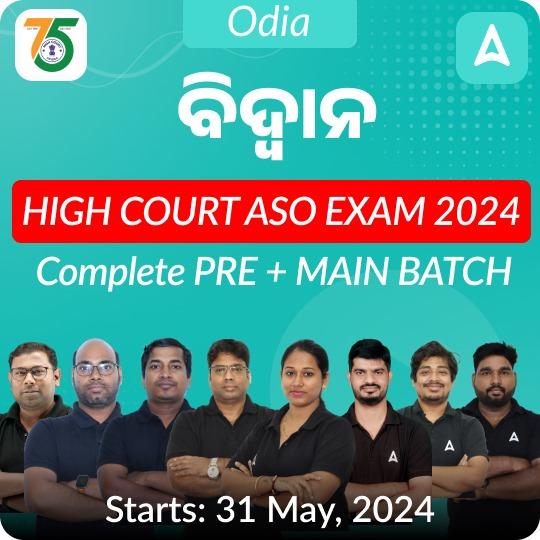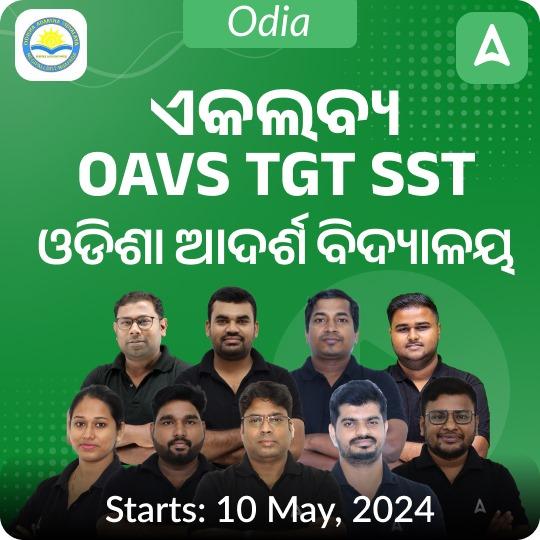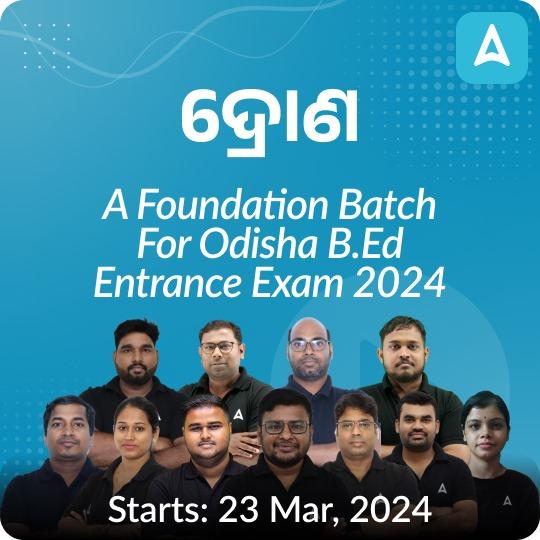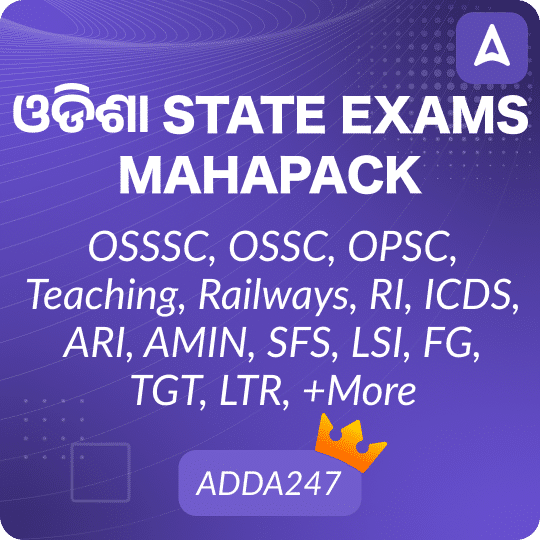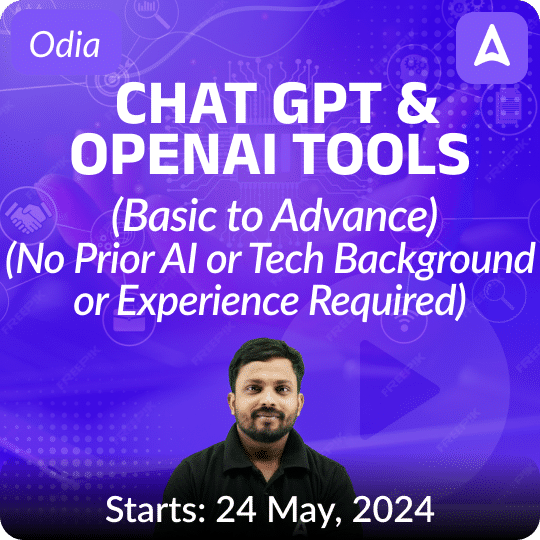Indian Polity is a crucial section for competitive exams like OSSSC RI, ARI, Amin, SFS, and ICDS, where a solid understanding of the Indian Constitution, political institutions, and fundamental principles of governance is tested. Top MCQs often cover essential topics such as the features and significance of the Preamble, the fundamental rights and duties of citizens, and the Directive Principles of State Policy. Questions might delve into the structure and functioning of the Parliament, including the roles of the Lok Sabha and Rajya Sabha, the process of law-making, and the nuances of parliamentary procedures.
Top 30 Indian Polity MCQs for OSSSC RI,ARI, Amin, SFS, ICDS Supervisor
- What is the new name proposed for the Waqf Act, 1995 by the Waqf (Amendment) Bill, 2024?
(a) United Waqf Management Act, 2024
(b) United Waqf Development Act, 2024
(c) United Waqf Management, Empowerment, Efficiency and Development Act, 1995
(d) Unified Waqf Property Act, 2024
Ans. (c) United Waqf Management, Empowerment, Efficiency and Development Act, 1995 - Which of the following is a new restriction imposed by the Bill regarding the formation of waqf?
(a) Only non-Muslims can declare waqf
(b) Waqf by user is removed
(c) Waqf can be declared by any person irrespective of religion
(d) Property ownership is not required to declare waqf
Ans. (b) Waqf by user is removed - Who is responsible for determining the ownership of government property identified as waqf under the Bill?
(a) Waqf Board
(b) High Court
(c) Collector of the area
(d) Central Waqf Council
Ans. (c) Collector of the area - Which body is constituted to advise the central and state governments and Waqf Boards?
(a) Central Waqf Council
(b) National Waqf Tribunal
(c) State Waqf Committee
(d) Parliamentary Committee on Waqf
Ans. (a) Central Waqf Council - What is the required religious affiliation for at least two members of the Central Waqf Council under the Bill?
(a) Hindu
(b) Christian
(c) Non-Muslim
(d) Muslim
Ans. (c) Non-Muslim - What major change does the Bill introduce in the composition of Waqf Boards?
(a) Members must be elected
(b) Members must be appointed by the central government
(c) State government nominates members, including non-Muslims
(d) Board members must belong to the Sunni sect
Ans. (c) State government nominates members, including non-Muslims - What key provision is removed from the Waqf Act, 1995, regarding the power to determine if a property is waqf?
(a) Power of High Court
(b) Power of Central Waqf Council
(c) Power of Waqf Board
(d) Power of local government
Ans. (c) Power of Waqf Board - Which sects are allowed to have separate Waqf Boards under the Bill?
(a) Sunni and Shia only
(b) Shia and Aghakhani only
(c) Bohra and Aghakhani
(d) Sunni and Bohra only
Ans. (c) Bohra and Aghakhani - What change does the Bill introduce regarding appeals against Tribunal decisions?
(a) Appeals are prohibited
(b) Appeals may be made directly to the Supreme Court
(c) Appeals may be made in the High Court within 90 days
(d) Appeals must be made within 30 days
Ans. (c) Appeals may be made in the High Court within 90 days - Which central authority is empowered to audit waqf accounts under the Bill?
(a) Comptroller and Auditor General (CAG)
(b) Central Waqf Council
(c) National Audit Office
(d) State Waqf Boards
Ans. (a) Comptroller and Auditor General (CAG) - Which amendment does the Waqf (Amendment) Bill, 2024, bring in relation to the formation of waqf by declaration?
(a) Any person can declare waqf
(b) Non-Muslims can now declare waqf
(c) Only a practicing Muslim for at least five years can declare waqf
(d) Declaration of waqf requires approval from the Central Waqf Council
Ans. (c) Only a practicing Muslim for at least five years can declare waqf - What happens to government property identified as waqf under the Bill?
(a) It remains waqf property
(b) It is transferred to the Waqf Board
(c) It ceases to be waqf property
(d) It is auctioned
Ans. (c) It ceases to be waqf property - Who chairs the Central Waqf Council according to the Waqf Act, 1995?
(a) Prime Minister
(b) President of India
(c) Union Minister in-charge of Waqf
(d) Chief Justice of India
Ans. (c) Union Minister in-charge of Waqf - Which schedule in the Indian Constitution allows for the administration of Tribal Areas that was mentioned in the context of Waqf?
(a) Fifth Schedule
(b) Sixth Schedule
(c) Seventh Schedule
(d) Eighth Schedule
Ans. (b) Sixth Schedule - What is the key feature of ‘Waqf-alal-aulad’ mentioned in the Bill?
(a) It allows endowment for any purpose
(b) It must not deny inheritance rights to heirs, including women
(c) It requires central government approval
(d) It applies only to movable property
Ans. (b) It must not deny inheritance rights to heirs, including women - Who has the power to make rules regarding the publication of waqf accounts as per the Bill?
(a) State government
(b) Central government
(c) Waqf Board
(d) Parliament
Ans. (b) Central government - Which member of the Waqf Board must belong to a specific sect if waqf properties exist for that community in the state?
(a) Sunni member
(b) Shia member
(c) Bohra and Agakhani members
(d) Sufi member
Ans. (c) Bohra and Agakhani members - The Concurrent List in the Indian Constitution is borrowed from:
(a) USA
(b) UK
(c) Canada
(d) Australia
Ans: (d) Australia - The Preamble of the Indian Constitution is influenced by:
(a) USA
(b) UK
(c) Canada
(d) Ireland
Ans: (a) USA - The emergency provisions in the Indian Constitution are derived from: (a) Germany
(b) USA
(c) Canada
(d) Russia
Ans: (a) Germany - The Fundamental Duties in the Indian Constitution are taken from:
(a) USA
(b) USSR
(c) UK
(d) Canada
Ans: (b) USSR - The method of election of the President in India is influenced by:
(a) USA
(b) Ireland
(c) Canada
(d) Australia
Ans: (b) Ireland - The concept of a quasi-federal form of government in India is taken from:
(a) USA
(b) Canada
(c) UK
(d) Australia
Ans: (b) Canada - The procedure for amendment in the Indian Constitution is influenced by:
(a) USA
(b) Germany
(c) South Africa
(d) USSR
Ans: (c) South Africa - Which part of the Indian Constitution deals with Fundamental Rights?
(a) Part I
(b) Part III
(c) Part V
(d) Part IV
Ans. (b) Part III - The Directive Principles of State Policy are enshrined in which part of the Indian Constitution?
(a) Part II
(b) Part IV
(c) Part VI
(d) Part VII
Ans. (b) Part IV - Fundamental Duties were added to the Indian Constitution by which amendment?
(a) 42nd Amendment
(b) 44th Amendment
(c) 52nd Amendment
(d) 61st Amendment
Ans. (a) 42nd Amendment - Which schedule of the Indian Constitution contains the list of recognized languages?
(a) First Schedule
(b) Eighth Schedule
(c) Seventh Schedule
(d) Tenth Schedule
Ans. (b) Eighth Schedule - The provision related to the administration and control of Scheduled Areas and Scheduled Tribes is included in which schedule?
(a) Fifth Schedule
(b) Sixth Schedule
(c) Seventh Schedule
(d) Ninth Schedule
Ans. (a) Fifth Schedule - Which part of the Indian Constitution deals with ‘Emergency Provisions’?
(a) Part XV
(b) Part XVIII
(c) Part XIX
(d) Part XX
Ans. (b) Part XVIII - Which schedule contains the Union list, State list, and the Concurrent list?
(a) Second Schedule
(b) Sixth Schedule
(c) Seventh Schedule
(d) Eighth Schedule
Ans. (c) Seventh Schedule

